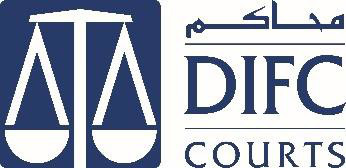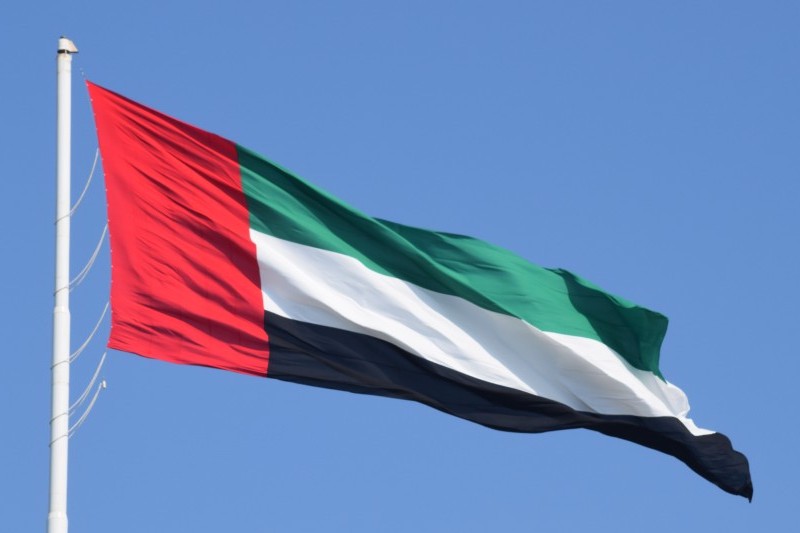 DIFC Courts Updates, including:
DIFC Courts Updates, including:
Global Courts of the Future Forum
New Technology and Construction Division
Reconciling Arbitral Regimes along the Silk Road
UAE-China trade ties deepen with landmark judicial cooperation agreement
DIFC Courts support UAE’s Asia business links with Malaysia cooperation agreement
Global Courts of the Future Forum to tackle legal implications of disruptive technology
A new forum of global experts in law, technology, IT and business is being assembled to help lawmakers and legal systems accommodate the accelerating growth of technology.
Dubai International Financial Centre (DIFC) Courts and Dubai Future Foundation are creating the Courts of the Future Forum, which will consider new ways to oversee disruptive technology such as driverless cars, drones, blockchain and cyber security within DIFC’s jurisdiction.
The Forum’s brief will be to design guidelines and prototype a commercial court that can operate anywhere worldwide. The initiative will help create certainty for businesses, investors and entrepreneurs currently unsure of the legal implications of rapid technological change.
Under consideration will be issues such as ownership and use of data; liability for cybersecurity incidents and data breaches; licensing standards for technology like autonomous cars, drones, 3D printing and blockchain; insurance claims relating to active technology industries; the liability of intermediaries, including online platforms; and micro-payments and micro-disputes.
The Forum’s work will focus on three key areas. First, creating legal clarity to ensure that valuable and innovative intellectual property created by entrepreneurs and investors is protected. Second, it will coordinate international efforts to ensure that courts and lawmakers understand likely future developments in technological innovation and online consumer behaviour. Lastly, the Forum will investigate the development of smart dispute resolution services. For example, e-commerce is an industry where resolving legal disputes entirely online is considered appropriate and may be preferred by consumers and businesses.
DIFC Courts have pioneered new thinking by taking a digital approach to resolving legal disputes. Its smart Small Claims Tribunal has already set a pattern for digital courts, enabling parties to attend a virtual court from anywhere in the world.
Recently DIFC Courts also collaborated with Microsoft to accelerate the digital transformation of commercial courts systems, focusing on enhanced connectivity and virtual solutions in registrations, filings, case managements and trials.
The inaugural forum will take place on November 12, 2017, with the key item on the agenda a debate on the “Rules of the Future.”
For more information: http://www.courtsofthefuture.org/
For DIFC Courts news, blogs, and updates, please register here: http://www.dra.ae/entry-form/
New Technology and Construction Division
The region’s technology and construction companies can now choose to have their most complex commercial disputes resolved by a specialised division within the Dubai International Financial Centre (DIFC) Courts.
The new Technology and Construction Division (TCD) draws on specialist judges and a new set of industry-specific rules to fast-track dispute resolution, providing greater certainty to businesses in court. The Division will only hear technically complex cases.
Examples in the construction sector might include complicated engineering disputes or claims arising out of fires. Technology-related cases could include liability for cybercrime incidents, disputes over the ownership and use of data, and issues relating to emerging technologies such as artificial intelligence or connected cars.
Parties located anywhere in the world are able to opt-in to the DIFC Courts’ jurisdiction, if both parties agree in writing. Requests to have claims heard by the TCD are made as part of the initial filing, with the Courts’ decision based on the written evidence provided.
The TCD will be headed by Justice Sir Richard Field, who brings 20 years of experience handling complex disputes in the London courts. A British national, he joined the DIFC Courts in 2015 following his tenure as Judge in Charge of the Commercial Court in London.
The Division launched in the same week as the DIFC Courts implemented a new web-based case management system developed in-house. Building on existing e-registry capabilities, the new system enables users to access case management information from their mobile phones, tablets and other electronic devices in real time.
Specific features include the ability to upload heavy bundles of documents; an entirely electronic, easy-to-use Small Claims Tribunal (SCT) section; faster and easier searchability of PDF case documents; integration with Emirates Identity Authority enabling verification of court users through their Emirates ID; and an interactive case plan that is automatically updated when documents are filed.
For more information click here.
For DIFC Courts news, blogs, and updates, please register here: http://www.dra.ae/entry-form/
Reconciling Arbitral Regimes along the Silk Road – Prospective from the DIFC Courts
Although the UAE was not traditionally part of the Silk Road or perhaps originally thought of as a key part of the ‘One Belt One Road (OBOR) policy, it has become a central point of international collaboration and has developed a significant relationship with China and especially Chinese business interests. The UAE has become an integral and modern part of the Silk Road and thus a key asset in the OBOR framework. This growing and important relationship is made even more significant when considering the connections that Dubai can offer with other locations in the region and across the globe. This opportunity to connect, essential to Dubai’s growth, is mirrored in the innovative relationships and initiatives to the Dubai International Financial Centre (the “DIFC”) and the DIFC Courts, both of which are essential contributing factors to the growing importance of the relationship between the UAE and China.
The DIFC free zone, situated as a common-law, English language island within the larger economic hub of Dubai, is a natural meeting point between east and west. The DIFC includes its own Courts, which can be used by those situated within the DIFC or by others who chose to ‘opt-in’ to the jurisdiction of the DIFC Courts in their contracts. The unique features of the DIFC Courts allow for the reconciliation of arbitral regimes and other aspects of OBOR legal regimes that may need reconciliation.
The reality of increased economic connectivity along the OBOR routes means a natural increase in legal disputes, disputes that will largely be cross-border and require reconciliation between legal traditions. Thus, legal tools in arbitration and in national courts have and must emerge to address these new features of OBOR related legal disputes. The DIFC Courts are a key feature of the modern OBOR framework as they can provide legal consistency and efficient administration of justice with an eye towards the unique challenges inherent in achieving the goals of the OBOR framework.
The DIFC Courts are the world’s most connected courts, entering into agreements with a number of national courts in order to provide transparency and consistency in the reciprocal recognition and enforcement of judgments. This connectivity includes a recent Memorandum of Understanding on judicial cooperation between the Shanghai High People’s Courts and the DIFC Courts. While DIFC Courts have worked over the past ten years to make numerous global connections, this was the first such agreement entered into by a Chinese Court. The agreement strengthens bilateral collaboration between the two courts, paving the way for the judiciaries to work together more closely as commercial courts. Furthermore, The DIFC Courts have published a guide for law firms and businesses on the mutual recognition and enforcement of monetary judgments in China and Dubai which provides detailed explanations as to how a DIFC Courts’ with a leading global law firm in both Chinese and vice versa. The guide, prepared in conjunction with a leading global law firm in both Chinese and English, is based on the existing 2004 Judicial Assistance Treaty between the People’s Republic of China and the UAE and will provide increased transparency and consistency for those with disputes touching on both the UAE and China.
Of particular interest to the OBOR framework is the DIFC Courts’ many connections in the OBOR region including Singapore, Malaysia, Kazakhstan and Kenya. Such connections allow the DIFC Courts to act as a legal hub through which judgments and often arbitral awards can easily be recognised and enforced in numerous jurisdictions along the Silk Road and beyond. This clarity, combined with nearly global enforcement prospects makes the DIFC Courts an integral part of the OBOR legal landscape, especially as these agreements are being developed further each year with more focus to come between connecting the DIFC Courts with additional states along the Silk Road and within the OBOR framework.
The DIFC Courts have decided a number if arbitration-related cases since their inception in 2006, mainly dealing with their jurisdiction to recognise and enforce arbitral awards. They have also generated extensive case laws with regards to the scope and application of the Arbitration Law and the requisite factors for ordering adjournments or stays in favour of on-going arbitration-related proceedings in other jurisdictions. The DIFC Courts can provide parties with support for these and many other arbitration related issues, especially for those with arbitral awards from other OBOR states or those looking to name an appropriate governing law and/or seat for any potential disputes that might arise from OBOR relationships and investments.
For DIFC Courts news, blogs, and updates, please register here: http://www.dra.ae/entry-form/
UAE-China trade ties deepen with landmark judicial cooperation agreement
China and the UAE first established diplomatic relations in the mid-1980s. In the intervening three decades, trade between the two countries has grown strongly, and is now estimated to be worth in excess of $55 billion annually. Indeed, since 2011 China has been the UAE’s second largest trading partner, while since 2014 it has been the number one trading partner of the emirate of Dubai.
In 2005, just 18 Chinese companies operated in the UAE. Today that figure is more than 4,000, with Chinese companies actively involved in many key sectors of the UAE economy. There is a particular focus on construction, real estate, financial services and technology. The Emirates are also an important hub for reaching new markets, with approximately 60% of trade between China and the UAE re-exported to Africa and Europe.
With more contracts being signed between Chinese and UAE companies than ever before, the potential for commercial disputes to arise has also risen. Given Dubai’s position as part of China’s “One Belt One Road” initiative, the DIFC Courts have made forging links with their counterparts in the world’s second largest economy a strategic priority in recent years.
Understanding how different courts will interpret the each other’s money judgments is an absolutely essential catalyst for boosting trade between countries. October 2016 witnessed a significant first step in this regard as the DIFC Courts signed a landmark cooperation agreement with the Shanghai High People’s Court, the foremost business court in the commercial and financial centre of mainland China, designed to bring certainty to businesses through enabling them to trade securely.
For more information click here.
For DIFC Courts news, blogs, and updates, please register here: http://www.dra.ae/entry-form/
DIFC Courts support UAE’s Asia business links with Malaysia cooperation agreement
The DIFC Courts’ ongoing work to underpin the UAE’s business links with Asia has been boosted by a new cooperation agreement with their counterparts in Malaysia. The agreement with the Federal Court of Malaysia covers procedures for the mutual recognition and enforcement of money judgments and builds on the formal relationships that have been established with judiciaries in China, Singapore and South Korea.
Bilateral trade between the UAE and Malaysia is estimated to be worth US$6 billion annually. In response to these strong business ties, the DIFC Courts and the Federal Court of Malaysia have come together to establish for the first time how the two courts will interpret each other’s money judgments, providing businesses with additional certainty should a contractual dispute arise.
For further information click here.
For DIFC Courts news, blogs and updates, please register here: http://www.dra.ae/entry-form/












